Album review: Jackie Marshall ‘broadens the soul and speaks to the heart’
This admirably idiosyncratic Brisbane singer-songwriter’s new record is both the antithesis and antidote to anodyne, paint-by-numbers modern pop.

Album reviews for week of February 9 2024:

ALTERNATIVE FOLK
You Are Not Too Much and You Are Enough
Jackie Marshall
Independent
The latest album from one of Australia’s most fascinating female artists features numbers fashioned by her for a lauded and nationally released independent film, titled Three Chords and the Truth, in which she played the lead role. Jackie Marshall’s startlingly original vignettes resonate with a vocal intensity and range that evoke the legendary US artist Janis Joplin. Her late mentor Sam Cutler, who advised Joplin — and also tour managed for the Rolling Stones and Grateful Dead — rated Marshall “far and away” the best female singer-songwriter to be found down under. This admirably idiosyncratic musician’s new record is both the antithesis and antidote to anodyne, paint-by-numbers modern pop. Like Joplin, Marshall wears her heart on her sleeve as she turns the mirror inwards in organic, close-to-the-bone songs relating to life, love, lust and longing. Between atmospheric fills from a tuned-in brass band and her own distinctive acoustic guitar strumming and keyboard accompaniment, Marshall’s songs are totally absorbing, from the ultra-soulful and organ-supported opener You Know What I Mean to an equally arresting closing guitar-backed piece titled Breathe Little One, with its anthemic chorus: “Free in the moment / Free to meet your heart / Free to love forever / Far from the daylit dark”.
Highlights to be found in between include I Know You, a poignant piece embellished by the fleet fingerpicking of Chris Pickering. Ditto, the Dylan-esque Lake Saint George and Headn South, the latter bearing an intriguing opening verse: “They met at the country fair / He didn’t like her flaming hair / She didn’t like his blatant stare / They got it on, right then and there”. Ode Canadia, in which a classy double bass figure is allied to back up the chorus, and the similarly catchy Heart-Shaped Face are equally engaging, as is All The Things, a passionate song about leaving. Meanwhile, Marshall’s phrasing of “All tomorrow’s parties I have crammed into yesterday / My body’s run itself outta town more times than I can say” in You Want What I’ve Got is worthy of Kurt Elling. Blurring the boundaries between blues, country, folk, jazz and pop while ploughing a fiercely independent furrow, Jackie Marshall is a passionate and wholly admirable artist who assuredly merits acclaim. There’s a refreshing honesty and originality about her songs, her earthy poetry, her expressive singing and her all-round musicality. In the words of the aforementioned Sam Cutler: “Her music broadens the soul and speaks to the heart.”
Tony Hillier

FOLK/ROCK
What Do We Do Now
J Mascis
Sub Pop
When not fronting pioneering US alt-rockers Dinosaur Jr., J Mascis has quietly kept a solo career going for the better part of 25 years. Trading his trio’s amp-blowing dynamics for something more intimate and folksy, the soft-spoken singer-songwriter approaches his troubadour endeavours with a lot less gravitas. Case in point: this album’s lead single, Can’t Believe We’re Here, is set to a charming no-budget music video of friends like David Cross, Fred Armisen and Eugene Mirman dancing. It leads a 10-track, 45-minute effort that gets by on simple, contemplative songwriting – and subsequently succeeds for essentially not pretending to be anything it’s not. Each track brims with bright six-string strumming, sizzling guitar solos and splashy drums (all played by Mascis himself), with memorable hooks sticking out on tracks like Right Behind You, Old Friends and the endearing title track. Though the back-end admittedly doesn’t hold up quite as well as the A-side, and the album’s same-same nature may cloy for some listeners, there’s still warmth and comfort to be found amid Mascis’s latest lackadaisical solo venture.
David James Young
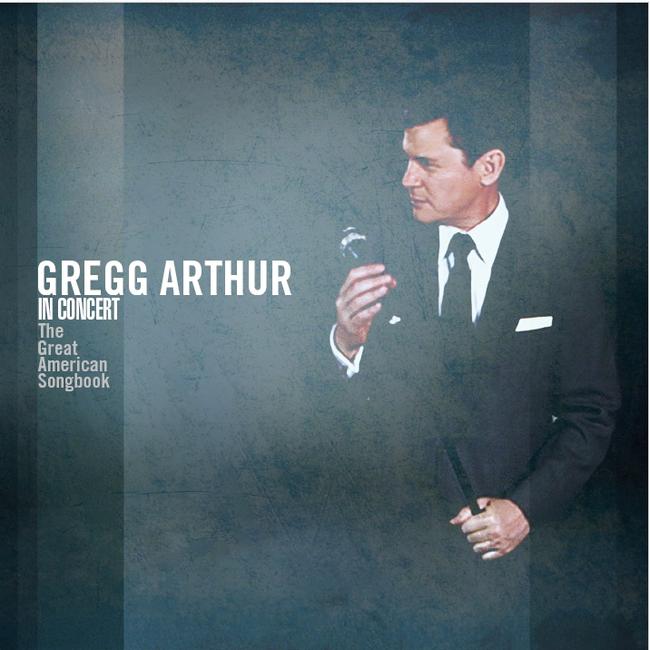
JAZZ
Gregg Arthur In Concert
Gregg Arthur
Juniper Jazz
This great album is appropriately subtitled The Great American Songbook. Since he returned home to Australia in 2014, cutting short a lucrative career in the US, singer Gregg Arthur has set the bar very high for Australian vocalists across a number of excellent albums, with his immaculate versions of standards from the Songbook. This album has four such standards, and Arthur sings his heart out, rising to the occasion in the knowledge that the performance is being recorded live. He’s accompanied by pianist Peter Locke, bassist Craig Scott and drummer Andrew Dickeson plus guests Craig Walters (tenor saxophone), and Jim Pennell (guitar). Three of seven tracks vary the repertoire: a jazz classic (Detour Ahead), one Jobim bossa nova (Corcovado) and an Arthur original (You With Me), but it’s in the four Songbook tunes that the album truly comes alive. To hear Arthur sing, for example, the great Lorenz Hart/Richard Rodgers composition My Romance is to know we’re in the hands of a masterful interpreter of lyrics and a superior purveyor of immortal melodies.
Eric Myers
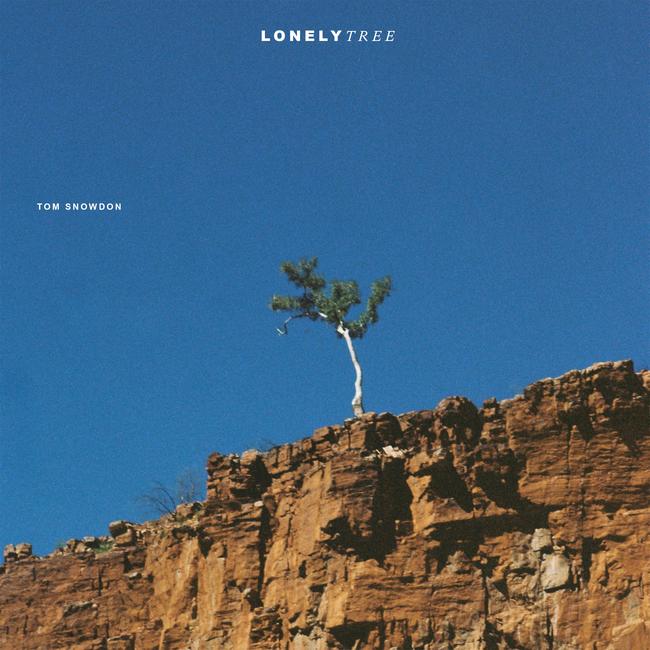
ART POP
Lonely Tree
Tom Snowdon
Pieater
Tom Snowdon’s supple, otherworldly vocals have been key to his past and present bands like Lowlakes and No Mono, but they’re even more impressive across this self-reflective debut album. Inspired in part by fruitful stints back to his remote hometown of Alice Springs, Lonely Tree doesn’t often make clear just what Snowdon is singing about. But even the more opaque stretches are stunning in their understated beauty, while making the long-bubbling emotional breakouts nothing short of revelatory. His deeply dreamy voice turns suddenly harsh on the early dramatic peak Lose My Body, while the penultimate title track hits an equivalent crescendo against a persistent, almost anxiety-inducing rhythmic drive and similarly paranoid lyrics before strings eventually manifest like a soothing balm. Musically, Snowdon weaves between minimalistic soft rock and flowing classical gestures, while the outlier Empty Start hews closer to dark, prowling R&B. The degree of variety and control he displays with his voice remains a wonder, whether he’s turning subtly inward or building toward something more expansive and open-hearted.
Doug Wallen
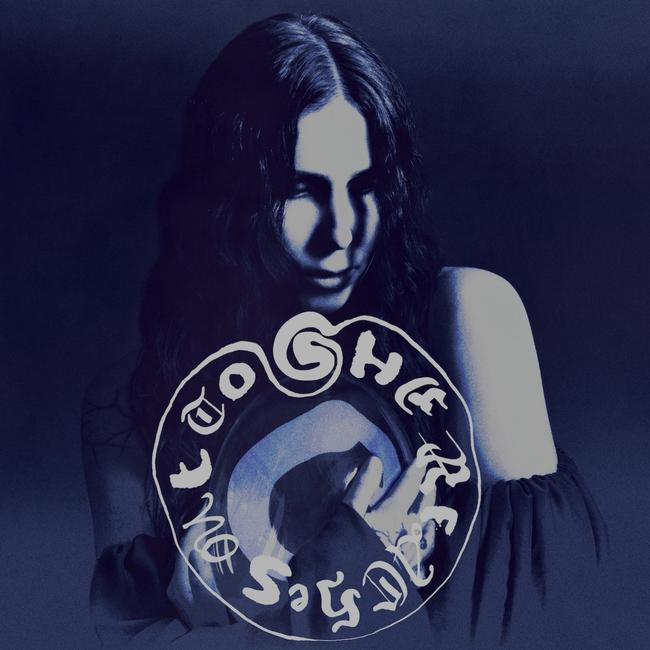
ALTERNATIVE/EXPERIMENTAL
She Reaches Out to She Reaches Out to She
Chelsea Wolfe
Loma Vista
On her first album in five years, US artist Chelsea Wolfe doesn’t just do away with the acoustic guitars that soundtracked 2019’s Birth of Violence; she’s thrown them in the cellar, locked the door, thrown away the key and torched the joint. She Reaches Out To… is a headlong dive into pop realms, with industrial harshness filling in the outlines. True to reputation, though, the combination of Wolfe’s songwriting skills and creative appetite ensures album No.7 is an instant classic of her catalogue. Whispers in the Echo Chamber wastes no time setting the scene with harsh, scraping electronics and pounding drum samples. An electric guitar cameo in the outro is the only metal on offer here, yet the 10-track set still manages to be her heaviest offering since the doomy hardcore of 2017’s Hiss Spun. Everything Turns Blue fully embraces dark pop and contains the biggest hook of her career, while Unseen World sounds like a long-lost Massive Attack b-side. Overall, this is a wonderful record, and one that re-establishes Wolfe as a leading light of experimental alternative music.
Alasdair Belling
Album reviews for week of February 2 2024:
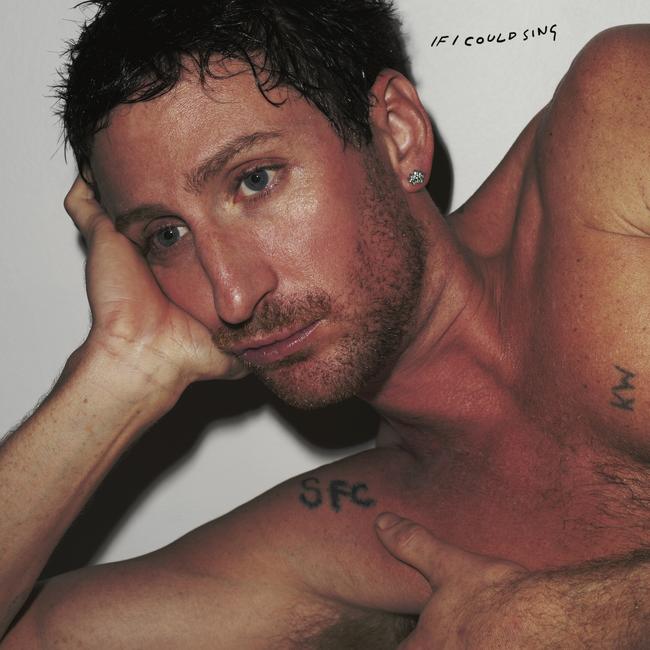
ALTERNATIVE
If I Could Sing
Kirin J. Callinan
Worse Records / Pias
Sydney’s Kirin J. Callinan has long luxuriated in embodying the Parents’ Worst Nightmare of Australia’s alternative music scene. His extra-curricular antics, which typically involve dangerous activity, offensive album artwork and various forms of nudity, have sometimes threatened to overshadow his music, which can be equally as provocative but always interesting. It’s taken Callinan a number of albums and stylistic iterations to land on If I Could Sing, his strongest and most enjoyable collection to date, which arrives at a time when the culture may have finally caught up with his manic, genre-jumping energy. There is no effective stylistic designation for a record such as this set, which sports songs that frequently end in entirely different universes from where they began. It’s perhaps better to see it as the summation of Callinan’s fascination with the boundaries of bad taste, how it is decided, and whether, if played brilliantly, it could persuade the listener to change their mind. There is no boundary of kitsch Callinan will not interrogate, no two disparate sounds he will not attempt to mash together to make something oddly beautiful.
Young Drunk Driver is a scrap-metal ballad that starts out with jagged industrial guitars and ends with a choir. The fuzz-glam groove of Eternally Hateful borrows equally from Bowie and Bauhaus, whipping itself into a frenzy of noise just as its melody lodges in the brain. On Chop Chop, Callinan comes off more like Michael Hutchence fronting an electroclash band. Many of these disparate sounds have become popular again; some of these early tracks sound like they could belong to postmodern noise duo 100 gecs. But the through line here is the writing, which is superb, but more importantly, Callinan’s guitar, which is arguably his superior instrument. In tandem with his solo career, Callinan has spent years behind the scenes collaborating with some of the scene’s most talented musicians, from Mac DeMarco, Alex Cameron and Weyes Blood through to bona fide stars such as Mark Ronson, Jimmy Barnes and ARIA winner Genesis Owusu. Such artists tap Callinan for his free spirit, but also his approach to his six-string, which can yield otherworldly results – such as on Crazier Idea, where it chimes like a video-game synth, or the ending of In Absolutes, where Callinan and his guitar howl together in sync like a white, tattooed Prince. The argument could be made that Callinan has played the jester for so many years because he felt uncomfortable simply being a highly skilled musician. Such sentiments should be laid to rest. This starry-eyed drive for experimentation is what the Australian music scene needs.
Jonathan Seidler

CLASSICAL
Beethoven Cello Sonatas
Timo-Veikko Valve and Aura Go
ABC Classic
★★★★½
To hear Timo-Veikko Valve in his first recital recording is significant in itself, but a clever pairing of works makes this album doubly interesting. The Australian Chamber Orchestra’s principal cellist since 2006, the Finnish-born musician possesses all the attributes of fearless strength and keen, expressive insight to do the finest justice to Beethoven: all five of his cello sonatas receive outstanding interpretations here with pianist Aura Go. There is blazing spirit in the youthful sonatas, Op. 5 Nos. 1 and 2, and deeply searching eloquence in the final one, Op. 102 No. 2. Compared to these magical performances, the third sonata, Op. 69, feels a trifle rushed. As a bonus, Valve and Go manage to squeeze in Anton Webern’s complete output for cello and piano – not a difficult feat since all the pieces are so short. From two romantic duos of 1899 to the atonal Drei kleine Stucke, Op. 11, and unfinished Cello Sonata of 1914, each performance is skilfully honed and carries great conviction. The album is worth procuring for these rarities alone.
Graham Strahle
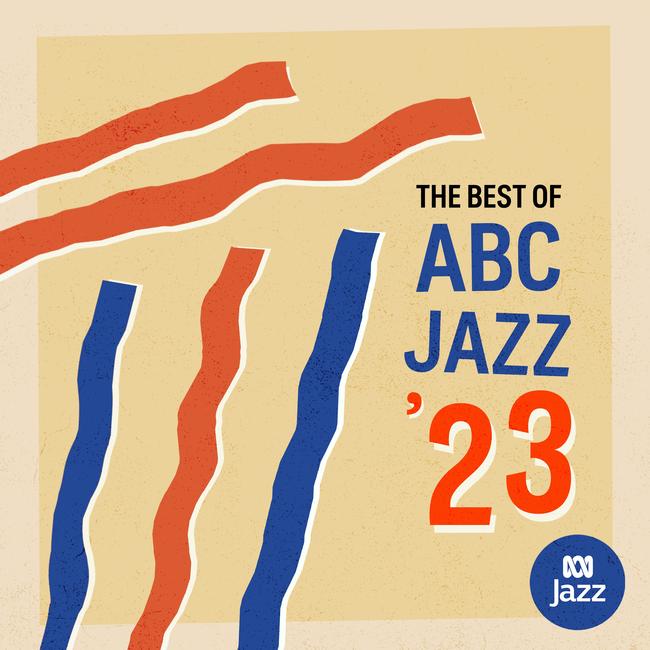
JAZZ
The Best of ABC Jazz ‘23
Various Artists
ABC Jazz
★★★★
For some time the chief engine room behind the flowering of Australian jazz over the past 10 or so years has been Jeremy Rose’s innovative label Earshift Music. More recently, ABC Jazz has introduced initiatives which have made a real difference: its Fresh Start Fund, for example, dating back to 2020, as well as an impressive program of composer commissions. This 12-track album follows up the comparable Jazz ‘22 album, and showcases an impressive array of jazz artists. The ABC’s commitment to established musicians is underlined by the album’s opening with Sunrise from pianist Mike Nock, and closing with his sensitive reading of the Bernie McGann classic Spirit Song. Other big names are featured – Paul Grabowsky, Zela Margossian, Jamie Oehlers – but it is the emerging artists who most capture my attention, such as pianists Wilbur Whitta and Matt Thomson; bassist Kate Pass; singer Natalie Dietz; and alto saxophonist Holly Moore. With this generation of artists now in full flight, the future of Australian jazz is in very good hands.
Eric Myers

FOLK
A Time To Grow
The Henry Girls
Independent
★★★★
Twenty years on from their inaugural studio recording, Eire’s The Henry Girls – sisters Karen, Lorna and Joleen McLaughlin from North Donegal – continue to grow in stature and status. Like their County Louth 1990s counterparts The Corrs, the trio combines popular music elements with rich Irish folk heritage, though in their case more Americana inclined. While exquisite three-part vocal harmony remains The Girls’ calling card, their silky multi-instrumental skills are on display throughout a nicely balanced set of originals, especially so in a mid-set medley that starts with a melodic air featuring harp and whistle before fiddle leads into an up-tempo finale. Elsewhere, violin supersedes a pretty Gaelic-titled piano tune, and ukulele underscores a stimulating song extolling the virtues of country life. Clarinet fills and wordless vocal harmonising add a breath of fresh air to another number eulogising the great outdoors, and these elements soar in a beguiling concluding piece that skips along to a Western Swing lilt while waxing lyrical about avian life above. The Girls’ first album for six years was well worth the wait.
Tony Hillier
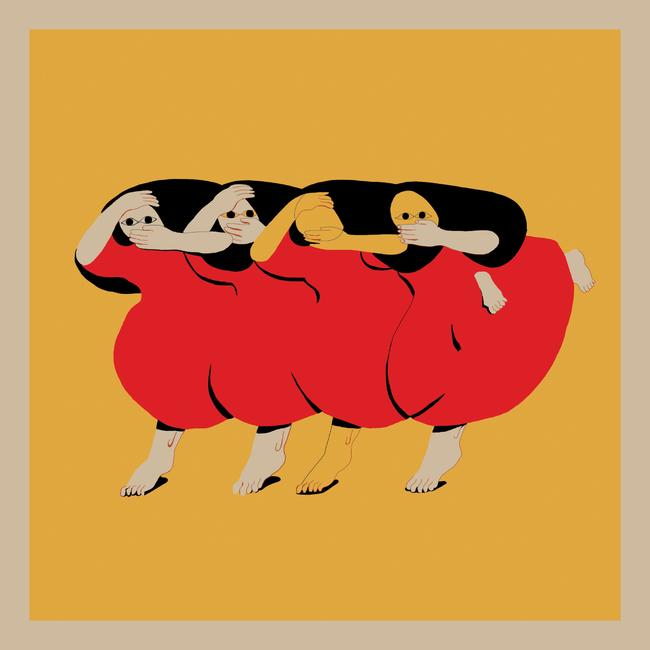
ELECTRONIC POP
People Who Aren’t There Anymore
Future Islands
Remote Control
★★★★
In 2014, Future Islands’ now-legendary performance on The Late Show had David Letterman out of his seat, exclaiming “I’ll take all of that you got!” The general public concurred, making the passionate Baltimore synth-pop/post-punk band a festival mainstay and its eccentric frontman Samuel Herring indie-rock’s most charismatic enigma. Though still thriving in the live department, ensuing studio efforts couldn’t quite capture the same lightning in a bottle. What’s refreshing about People Who Aren’t There Anymore, then, is that it’s not doing the same thing again and expecting different results. It’s a more mature and refined sound, often traversing power ballad territory (The Fight, Corner Of My Eye), but never losing a sense of forward momentum – or, crucially, the theatrical passion in Herring’s distinctive vocals. Furthermore, upbeat moments like King Of Sweden and the pristine, cascading Peach ensure there’s still plenty of lunging dance-moves to be executed. An album of ageing gracefully, raving unto the joy fantastic and lyrics that will make you pound your beating chest? We’ll take all of that you got.
David James Young

To join the conversation, please log in. Don't have an account? Register
Join the conversation, you are commenting as Logout